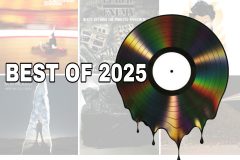Good Cheer Records has announced that the new LP from Mo Troper will be released on November 17.
On Troper’s 2016 Beloved LP, he played diarist, blindsiding his subjects with a never-ending assault of unbecoming desires and grievances. The accelerator jammed, and the car crashed. But on Exposure & Response, Troper plays ironist. The unflinching emotionalism of his earlier material has been traded for a world weary wit reminiscent of the Magnetic Fields or Randy Newman (or, Newman’s own idol, Tom Lehrer); the redlining vocals and squealing electric guitars have been exchanged for baroque landscapes and parlor room arrangements that recall solo McCartney or Todd Rundgren. In an era when empty phrases like “lo-fi” and “bedroom pop” have reached the zenith of their cultural capital, Exposure & Response is iconoclasm-in-reverse-it’s a record sentimental for an era when pop music was important, but never self-important.
Exposure & Response-like Troper himself-is rife with contradictions. The record’s elaborate, “pretty” arrangements serve as the backdrop to some of his most contemptuous roasts: “Your Brand” skewers clickbait moguls who monetize tragedy, the perfect anthem for an era of distasteful (yet profit-sweetening!) Pepsi commercials and punk rock think pieces plastered with Adidas ads. “Poet Laureate of Neverland” concerns a fallen, pathologically-sentimental influencer intent on grooming a new generation of listless Lost Boys. Initially, “Dictator Out of Work”-the album’s apex-sounds like a tragic historical drama, but slowly reveals itself as furious social commentary on so many things: the ephemera of social media fame, a millennial generation that’s both conceited and unemployed, and our own apeman of a President who just wasn’t expecting this level of viciousness.
But as Exposure & Response unspools, Troper’s songs become more and more personal. “Wicked” condenses the near-universal pangs of sexual confusion into just over two minutes of candy-coated, pure-pop bliss, while “Clear Frames” sees the songwriter predictably-pathetically-paint himself as the perpetual underdog. By the end of the record, Troper has run out of targets. He turns to his own parentage, tackling an absent father with “Old Man”, and final track “In the Waiting Room” ends where the album begins, once again denouncing art as exploitative and selfish: “You realize you might lose your mother / None of your fake problems prepared you for this,” Troper sings, as he drags himself across the finish line to scattered golf claps. It’s a jarring end to a challenging pop album, but that’s art; anything less would merely be a finger painting on the fridge.








Social Media